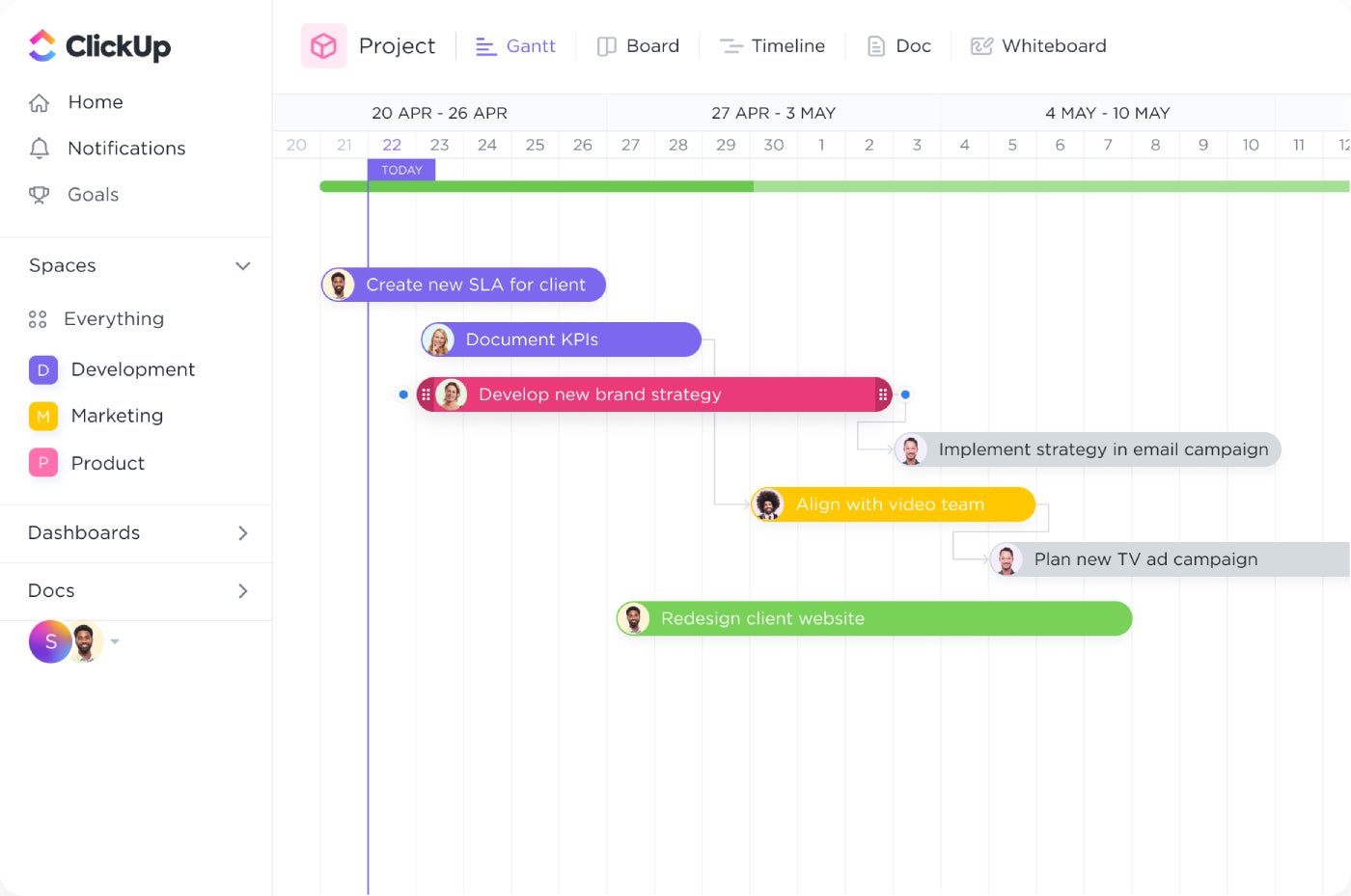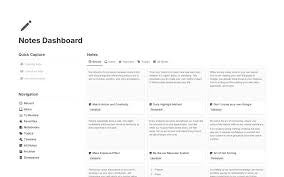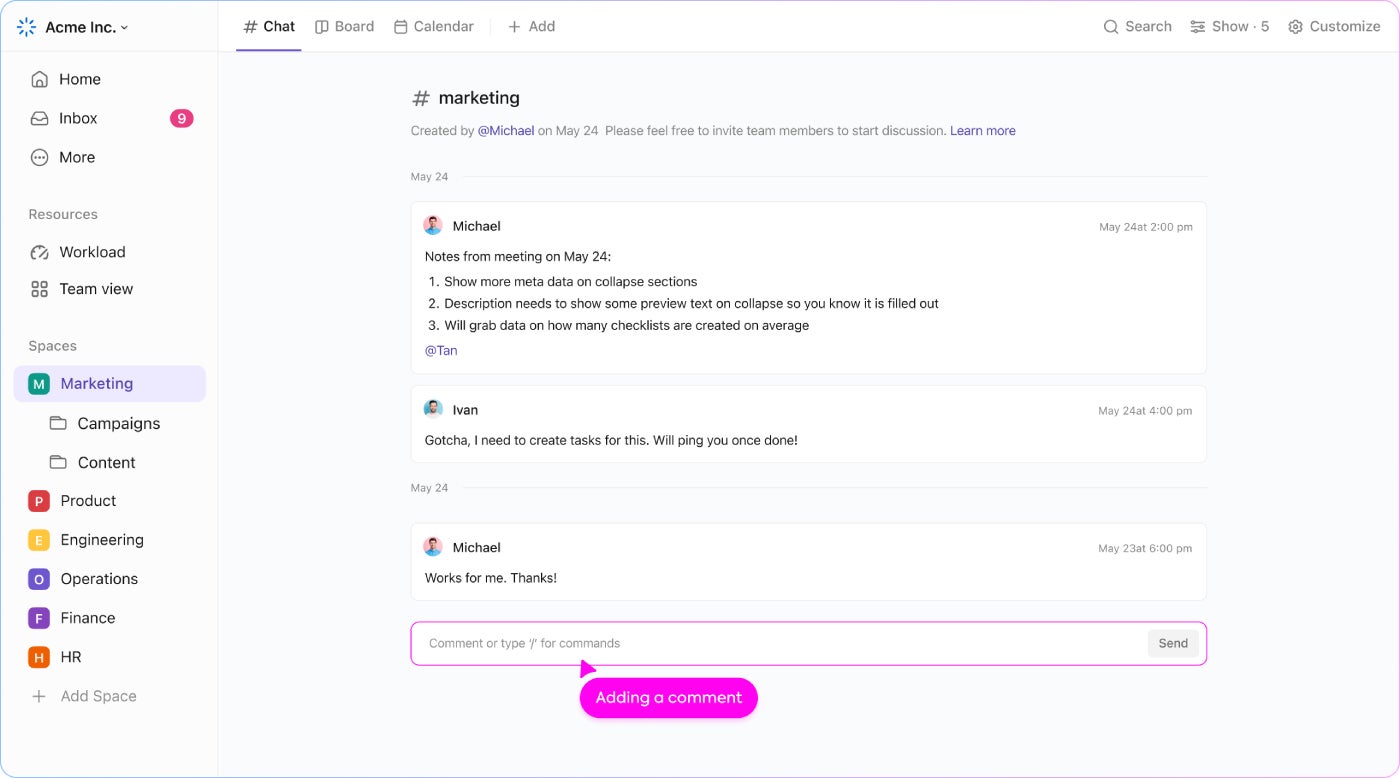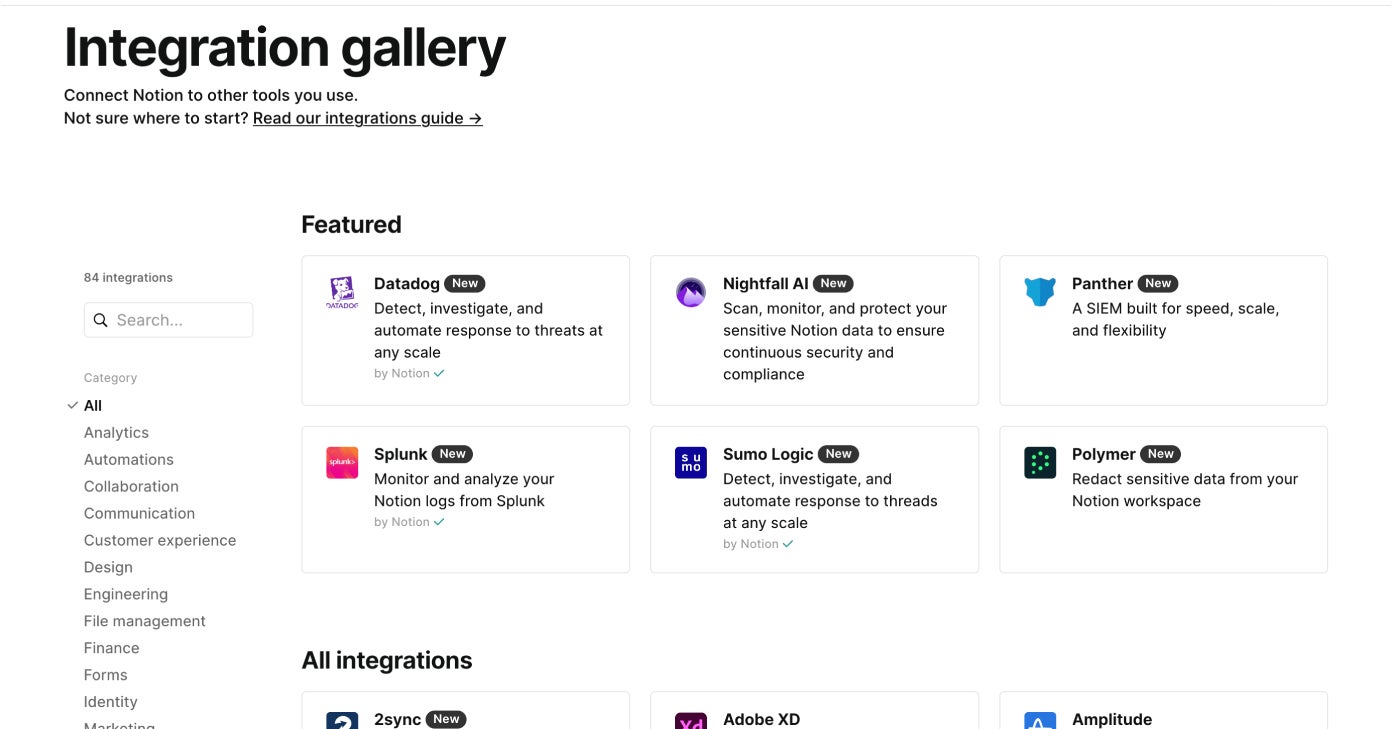ClickUp and Notion are two versatile project management software solutions that offer various features to help teams stay organized and productive. They seem similar when compared based on readily visible features, but with an in-depth analysis of their functionalities, strengths and weaknesses, you will find that each tool has unique attributes that cater to different team needs.
We aim to help you decide between ClickUp and Notion by comparing the tools’ prices and features and highlighting some pros and cons.
Featured Partners
ClickUp vs. Notion: Comparison table
| Features | ||
|---|---|---|
| Starting price (billed annually) | ||
| Starting price (billed monthly) | ||
| Free forever plan | ||
| TR rating | ||
| Storage limits on the free plan | ||
| Storage limits on a paid plan | ||
| Multiple views | ||
| AI compatible | ||
| Integrations | ||
| Automation | ||
ClickUp vs. Notion: Pricing
ClickUp’s free plan is more generous than Notion’s. ClickUp’s free tier offers unlimited seats, tasks and views, whereas Notion’s limits the number of blocks and file uploads. This makes ClickUp a more affordable option for teams that require unlimited users and tasks, while Notion may be more suitable for individuals or smaller teams looking for a versatile tool for note-taking, task management and collaboration.
ClickUp pricing
- Free: Up to 100 MB storage and unlimited users.
- Unlimited: $7 per user per month, billed annually, or $10 per user per month, billed monthly.
- Business: $12 per user per month, billed annually, or $19 per user/month, billed monthly.
- Enterprise: Custom pricing.
- ClickUp AI: $5 per user per month — paid plans only.
For more information, read our comprehensive ClickUp review.
Notion pricing
- Free: No cost for one user and up to ten guests
- Plus: $8 per user/month, billed annually, or $10 per user/month, billed monthly
- Business: $15 per user/month, billed annually, or $18 per user/month, billed monthly
- Enterprise: Custom pricing.
- Notion AI: $8 per member per month, billed annually, or $10 per member per month, billed monthly
For more information, read our full Notion review.
ClickUp vs. Notion: Feature comparison
Project management
Winner: ClickUp
Both ClickUp and Notion offer impressive project management capabilities, including task assignment, setting deadlines and creating task lists. But ClickUp has more robust project management functionality with features like Gantt charts, time tracking, dependencies and custom statuses. These features allow for better organization and easy tracking of project workflows.
Notion, on the other hand, has a more straightforward interface for project management and lacks advanced project tracking features. While Notion suits basic project management needs, ClickUp wins this category for its expansive capabilities.

Note-taking and documentation
Winner: Notion
Notion is known for its strong note-taking and documentation features and its easy-to-use interface for creating and organizing notes, documents and knowledge bases. Notion allows users to create templates, collaborate in real time and easily embed multimedia content.
ClickUp also offers note-taking and docs features, but they are not as robust as Notion’s. While ClickUp allows users to attach documents to tasks and create notes within projects, it lacks the flexibility and customization options available in Notion. For those looking for a tool specifically for note-taking and documentation, Notion is the tool for you.

Collaboration
Winner: Tie
ClickUp and Notion both have notable collaboration features such as real-time editing, commenting and task assignment. ClickUp allows mentions, threaded comments and sharing of task lists, enhancing team collaboration and communication. It integrates with communication tools like Slack and Google Workspace as well. Notion does not fall short of collaborative features either, as it also has features like comments, @mentions and content sharing.

Integrations
Winner: ClickUp
ClickUp and Notion allow integrations with popular third-party apps to enhance functionality and streamline workflows. ClickUp offers an extensive list of over a thousand integrations, including tools like Google Drive, Slack and Trello, allowing users to connect their favorite apps and services to ClickUp.
Like ClickUp, Notion offers integrations with popular apps such as Calendly, Figma and Adobe XD, but its integration options are more limited. For users that rely heavily on integrations and third-party apps to manage their work, ClickUp is the better choice.

ClickUp pros and cons
Pros of ClickUp
- More affordable for small teams.
- Highly customizable.
- Lets you add a single or multiple assignees to a task.
- Unlimited storage in premium plans.
Cons of ClickUp
- Learning curve due to its extensive customization.
- Less cost-effective the more users you have.
For further reading, see our list of top ClickUp alternatives.
Notion pros and cons
Pros of Notion
- Customization for different workflows.
- Databases for resource management and documentation.
- Enables easy collaboration.
Cons of Notion
- Limited integration option compared to ClickUp.
- Performance issues with complex projects.
Want to learn more about other tools, like Notion? See our top Notion alternatives and competitors.
Should your organization use ClickUp or Notion?
Choose ClickUp if . . .
- You need advanced project management software.
- You need a tool to manage complex projects.
- You require detailed reporting and analytics for project progress and performance tracking.
Choose Notion if . . .
- You need a flexible and customizable tool for task management, note-taking and knowledge sharing.
- You prefer a clean and minimalist interface for organizing and collaborating on projects.
- You want a platform that allows for easy, cross-functional collaboration and communication within your team.
- You value the ability to create templates and databases to streamline workflows and processes.
Review methodology
To write this review, we conducted hands-on research using both ClickUp and Notion free plans, exploring and testing out their features extensively. We evaluated each tool’s functionalities by creating sample projects, tasks, notes and documents.
We also consulted user reviews for a broader perspective on ClickUp and Notion. For this comparative analysis, we considered affordability, customer support and overall user satisfaction.




